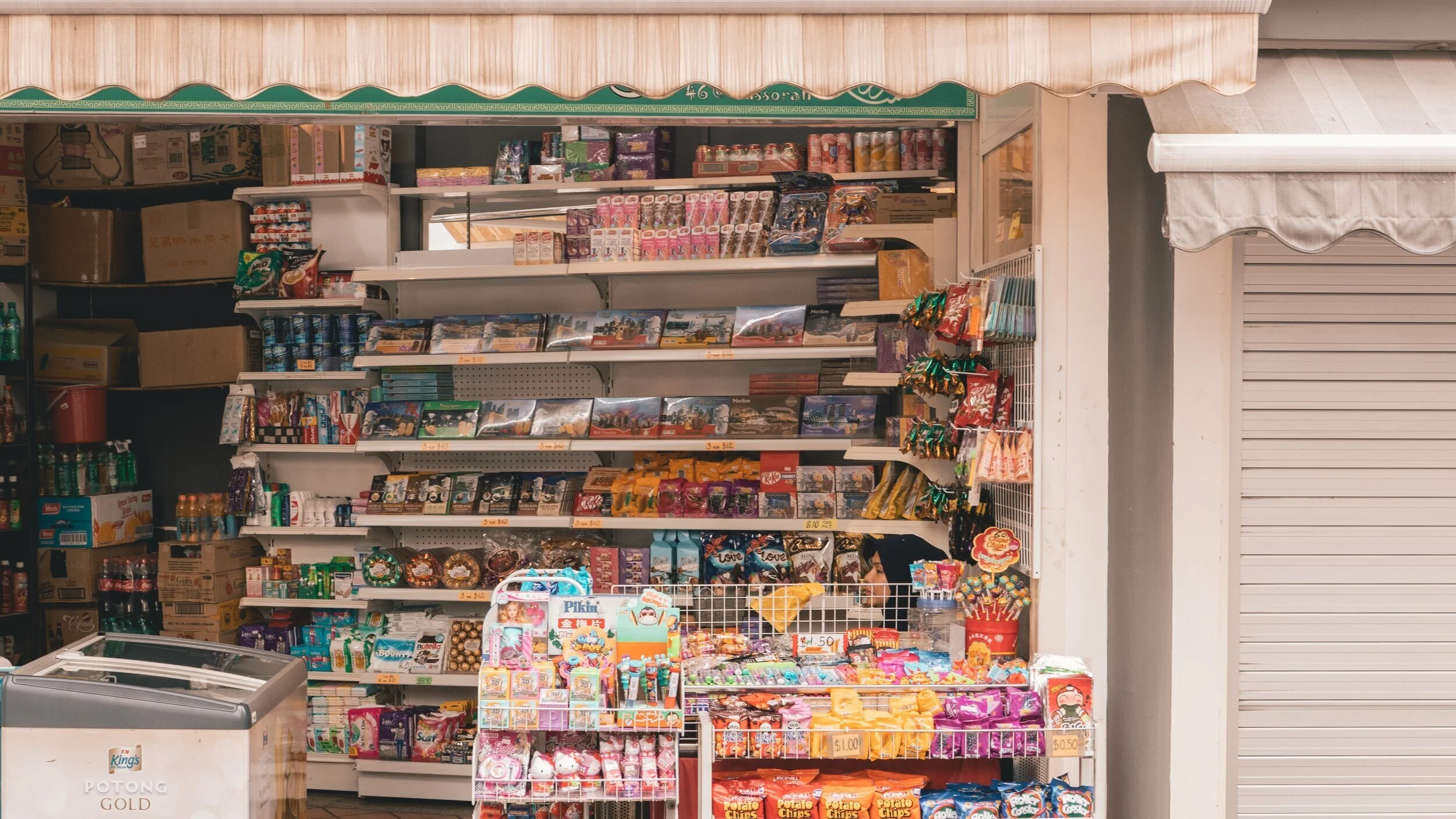Small PoC-Owned Businesses in the Pandemic
by Kayla Nguyen
Small Business Saturday, a widespread initiative to shop at small businesses especially on Saturday, comes and goes every week. But why has this initiative taken off? The people—producers, consumers, and employees, connect both in front of and behind the scenes to create a thriving community of small businesses both locally and online. However, the onset of the pandemic affected everyone, including small businesses—many of which were forced to close their doors. People of Color-owned small businesses in particular were faced with strenuous burdens, despite civic movements for equality and non-discrimination. While shopping at small businesses differs from the retail chain experience, doing so not only supports the business, but also you, your community, and the fight against economic inequality nationwide.
What is a small business?
Small businesses are privately-owned corporations, partnerships, or sole proprietorships with less revenue than larger businesses. While the threshold for a small business depends on the industry, the maximum number of employees that qualifies for a small business ranges from 250 to 1,500. Local small businesses provide goods and services to local communities and are brick-and-mortar stores—physical stores where consumers make purchases in person. On the other hand, online small businesses are operated remotely, enabling them to provide goods and services worldwide.
Large versus Small: The Benefits
For You
At a local shop, the owner of the business can offer expert or professional advice. For example, a local garden shop can give you advice or even offer a hands-on tutorial on how to tend to the fruits and vegetables in your home garden! Local small businesses also readily offer source information, so you know where your goods come from, who makes them, and the answers to other questions you may have. In both online and local small businesses, you can often chat directly with the person who makes your product. This direct line of communication allows you to easily personalize goods and confirm nutritional information to match your individual needs
My family and I frequented a local farmers market before the pandemic, and the lively sense of community never failed to amaze me. Oftentimes, the person behind the counter was the producer themself. Being able to buy produce practically directly from the ground was a rare opportunity I cherished! During the pandemic, however, rather than a full-scale farmers market, I’ve found the same solace in brick-and-mortar small businesses such as Flower Synergy, a local family-owned flower shop. The shop owner was able to quickly pick out flowers for every occasion while expertly explaining to me the meaning behind each flower while wrapping the beautiful bouquet. Transactions were fluid and COVID-friendly—orders could be taken online and the shop sent prompt updates on the order through text. As my household has high-risk individuals, this was an immense relief as there was no physical contact with other customers or employees, as well as an enforced mask and limited capacity policy.
For Your Community
Shopping at local small businesses improves community health, as they are essential to both gross and net job creation. Furthermore, a study from American Economic Review suggests that in times of economic recession, “the net job creation of large employers slowed down much faster” than small businesses [1]. By shopping at local small businesses, you can help create more jobs in your community during times of crisis like the COVID-19 pandemic. Although it seems to be common knowledge that the opening of a new retail store creates more jobs, a study from Review of Economics & Statistics reveals that the opening of a new Wal-Mart induces an average loss of 20 wholesale jobs in just five years [2]. This analysis contrasts Wal-Mart’s claims of adding 200-400 jobs to the market with every new opening of a Wal-mart. In reality, new Wal-Mart openings force small local businesses to down-size or close completely from revenue loss. While the opening of a large retail store may create more jobs initially, its effects over time become detrimental to the health of the community.
This slow-down, or even decrease, of job market expansion is unfortunately not only caused by physical stores. In fact, an analysis of US Census data shows that while small businesses employ 57 people per $10 million in sales, Amazon only employs 14 [3]. That means that for the same amount of sales, Amazon only creates a little over a quarter of jobs that small businesses create, with the additional downsides of inferior pay and working conditions for workers.
For the Environment
Finally, shopping at small businesses is less detrimental to environmental health, as local shops source local goods Without having to transport goods from large producers to local chain stores, much less gas consumption is involved; thus, small businesses have much smaller carbon footprints compared to larger retail stores. In fact, residents of areas with more local businesses have been recorded to have 26% less automobile miles [5]. Not only does shopping at local small businesses reduce gas emissions from transportation, the reduced shipping and transportation (enabled by local storage) prevents sprawl and natural habitat destruction! Shopping at local businesses is not only convenient and beneficial for both you and the business you are supporting, but doing so also better protects our earth from climate change and the loss of our animals’ homes.
Priscilla du Preez via Unsplash
Local PoC-Owned Small Businesses
While starting a small business is already difficult in and of itself, continued discrimination in the United States creates an even more challenging situation for PoC-owned small businesses. Lemel Durrah, founder and owner of Compton Vegan, a vegan restaurant in Los Angeles, recounted the difficulty of becoming successful as a Black small business owner He describes becoming a Black small business owner as "challenging," and "a tremendous feat in America."
With the surge of the Black Lives Matter movement in 2020, Durrah observed “a lot of momentum to support Black businesses, a surge of incoming business, and an increase of followers.” However, he noted that “once [the movement] was no longer on TV, things went back to normal”—the sudden increase of incoming customers subsided without leaving a major positive impact. When asked how the movement impacted his community, Leah recounted that there was “no major change” as he lives in a community where “things like the killing of George Floyd happen all the time.” Becoming a small business owner as a PoC, as Durrah explains, is no easy feat. As Black-owned and PoC-owned small businesses have reportedly lower revenue than non-POC-owned, the continued support of these businesses is essential in the fight towards equality.
Furthermore, the pandemic under the Trump presidency influenced discrimination against Asians and Asian-Americans;Trump labeled the SARS-CoV-2 virus as the “China plague” and “Kung flu” [6]. Vicha Ratanapakdee, an 84-year old immigrant from Thailand, was killed in San Francisco on January 28th, 2021 in an unprovoked attack on the basis of his Asian race. Unfortunately, many more attacks on Asians and Asian Americans have swept across the U.S. since Ratanapakdee’s muder. As the oldest Chinatown in the United States, San Francisco’s Chinatown holds much of the fundamental history of Asian immigrants and Asian-Americans. Eastern Bakery, which opened 1924 and stands as the oldest bakery in Chinatown, is known for their mooncakes (among other popular pastries); they even prompted a visit from former president Bill Clinton. However, the historical bakery faced a 70 percent drop in sales as the result of the pandemic [7]. With increased discrimination towards Asians and Asian-Americans, many small businesses in historically Asian towns are left with no option but to close their doors.
The onset of COVID-19 struck small businesses worldwide, but in the United States, PoC-owned small businesses suffered considerably larger setbacks due to coinciding social justice movements and hate crimes which have compounded the negative impacts of the pandemic alone. While the number of small businesses plummeted by 22 percent from February to April 2020, “African-American businesses were hit harder, experiencing a 41 percent drop in business activity. Latinx business owner activity fell by 32 percent, and Asian business owner activity dropped by 26 percent. [4]” With continued losses as the pandemic continues, the increased loss of PoC-owned businesses puts forward an unfortunate perspective on economic inequality. When shopping at local small businesses, there are many easily-accessible online and physical sources that offer lists of PoC-owned businesses, including www.supportblackowned.com, www.hispanicya.com, www.helpasianbiz.com, and various newspapers such as the Los Angeles Times.
The Bottom Line
Shopping at small businesses both locally and online offers benefits that include better access to product information and expert advice, supporting job stability in your community, decreasing the release of air pollutants into the environment, and supporting the fight against discrimination towards PoC. While small businesses worldwide were largely affected by the pandemic, PoC-owned small businesses suffered significantly larger setbacks, with Black-owned businesses closing nearly double the average percentage of small businesses overall. With the rising popularity of Small Business Saturday, shopping at small businesses has become more accessible. Perhaps there have been small businesses near you that you want to check out. If not, there are plenty of online small-businesses to support, too!
References
“The Contribution of Large and Small Employers to Job Creation in Times of High and Low Unemployment.” American Economic Review. (2012).
“Job Creation or Destruction? Labor Market Effects of Wal-Mart Expansion.” Review of Economics & Statistics. (2005).
“The Truth about Amazon and Job Creation.” Institute for Local Self-Reliance. (2013).
“The Impact of COVID-19 on Small Business Owners: The First Three Months after Social-Distancing Restrictions.” National Bureau of Economic Research. (2020).
“Why Buy Local?” Sustainable Connections. (2021).
“Attacks on Asian Americans during pandemic renew criticism that U.S. undercounts hate crimes.” The Washington Post. (2021).
“The country’s oldest Chinatown is fighting for its life in San Francisco.”The Washington Post. (2021).









